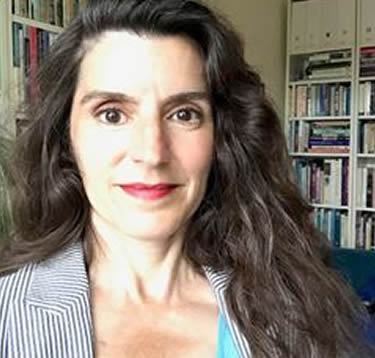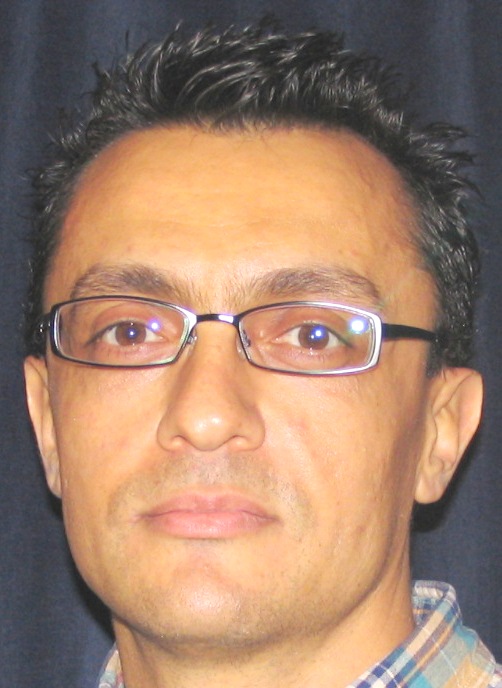
Four faculty members from York University’s Faculty of Health were recognized for their accomplishments in educational leadership and curricular innovation, teaching, research and service on May 3 when the annual Dean’s Awards were announced.
This year’s recipients are: Rachel da Silveira Gorman – Dean’s Award for Excellence in Educational Leadership, Pedagogical and/or Curricular Innovation; Mary Desrocher – Dean’s Award for Excellence in Teaching; Mazen Hamadeh – Dean’s Award for Excellence in Service & Engagement Impact Award; and Joseph Baker – Dean’s Award for Excellence in Research.
The annual awards alternate each year between “early career” faculty and “established career” faculty in the categories of Teaching, Research and Service. This year’s awards cover the 2021-22 academic year for established career faculty.
“This year the Faculty of Health Dean’s Awards recognize four established career faculty members. These individuals personify excellence in teaching, educational leadership, service, and research, by providing quality teaching, an inclusive and supportive environment for learning, delivering outstanding and impactful service to ensure student success, and undertaking ground-breaking research,” said Susan Murtha, interim dean.
“On behalf of all faculty, staff, students and community partners, congratulations to this year’s winners.”
Dean’s Award for Excellence in Educational Leadership, Pedagogical and/or Curricular Innovation
Award Recipient: Rachel da Silveira Gorman, School of Health Policy and Management
Nominated by Marina Morrow, professor and Chair of the School of Health Policy and Management
This award recognizes outstanding educational leadership, pedagogical and/or curricular innovation.

Gorman is a trailblazer in her field and in the classroom. Shortly after arriving at York, Gorman founded the Black, Transnational and Indigenous Narratives of Disability (BTIND) Working Group. This initial collaboration was funded by the Faculty of Health Junior Faculty award, and was made up of Black, Indigenous and people of colour (BIPOC), disability studies graduate students from York, the University of Toronto and Toronto Metropolitan University (formerly Ryerson). This group continues and is at the forefront of navigating power relations in the classroom and among teaching teams by hosting discussion of racism and ableism in the classroom.
Gorman’s commitment to long-term mentorship is outstanding; she often mentors students from their undergraduate studies through to postdoctoral and junior faculty positions. Her tireless commitment has directly led to an increase in BIPOC, mad and disabled-identified scholars in several key fields.
Gorman’s impact on teaching and learning extends beyond York University. She is frequently invited by other institutions in the U.S. and Canada to teach intensive course and seminars on disablement.
Gorman is an international expert on mad studies and inclusive education. Her 2013 publication titled Mad Nation? Thinking through race, class and mad identify politics is a critique on exclusionary access, accommodation and universal design procedures in higher education is one of the most cited in the field. She is a sought-after speaker and consultant, both nationally and internationally on the top of disability arts and arts-based pedagogy.
At the beginning of COVID, Gorman as graduate program director of the Critical Disability Studies graduate program immediately implemented weekly zoom check-ins one for her master’s students and another for her doctoral students. These sessions became the lifeline for students and led to completion of many major research papers (MRP) and dissertations. For graduating doctoral students, these weekly meetings became a place for step-by-step coaching with opportunity to develop material for job interviews and teaching demonstrations.
Gorman’s approach to inclusive education in the classroom is cited by many students as their inspiration for how they would teach in post-secondary context.
Dean’s Award for Excellence in Teaching
Award Recipient: Dr. Mary Desrocher, Department of Psychology
Nominated by: Matthew Keough, assistant professor, Department of Psychology
This award recognizes outstanding commitment to high-quality teaching.

Desrocher has been at York for 22 years and during that time she has dedicated herself to teaching and mentoring undergraduate and graduate students as well as new colleagues. Students recognize her enthusiasm for teaching and state that she is one of the best teachers at York. Students appreciate the excellent feedback that Desrocher provides in a timely manner and her availability to meet and provide individualized feedback. She enables students to grow in their knowledge as the course progresses rather than having a single opportunity to complete and submit an assignment.
For her graduate classes, prior to the start of the course, Desrocher welcomes her students to submit any topics/areas of interest they wish to discuss in class and then she endeavours to add this to her course syllabus. This ensures students stay engaged and excited about attending lectures. She accommodates students without judgement.
Desrocher mentors graduate and undergraduate students and currently she has 10 graduates and 16 undergraduates working in her lab researching areas of pediatric neuropsychology and developmental psychology. She is also generous with her time by mentoring junior faculty, her selflessness is recognized as this nomination was put forward by a junior faculty member who benefited from her guidance.
Desrocher is the creator and facilitator of the Justice, Equity, Diversity and Inclusion Committee in Clinical and Clinical Development Programs in the Department – this committee brings together students and faculty to discuss equity, diversity and inclusion issues in clinical training, admission and provision of service to marginalized communities. Her leadership in diversity to clinical practice has inspired current graduate students to undertake special community initiatives through York’s in-house psychology clinic.
Dean’s Award for Excellence in Service and Engagement Impact
Award Recipient: Mazen Hamadeh, School of Kinesiology and Health Science
Nominated by: George Mochizuki, assistant professor, School of Kinesiology and Health Science
This award recognizes the outstanding service and impact of faculty members in the Faculty of Health. Outstanding service requires that someone has gone beyond the usual service expectations.

Hamadeh has demonstrated commitment and played a vital role in ensuring student success and a positive student experience. His leadership and commitment have created excellence in services for students. The impact of these efforts are undeniable and go above and beyond the expectation of his leadership role.
The nomination package was full of examples of Hamadeh’s contributions, and many of the student supports that Hamadeh championed through his work as the head of Stong College did not previously exist for the Faculty. These positive experiences by students have contributed to greater engagement once they are alumni, as evidenced by hundreds of former students attending the college events. As head of Stong College, Hamadeh led a re-visioning of evidence-based transitioning supports which contributed to an improvement in student conversions and retention of students within the college network and the life course of students in the Faculty.
Hamadeh’s efforts have led to inclusion of diverse student voices within the Faculty. This is demonstrated through his responsiveness to, and empowerment of, student voices in “new” spaces, through community engagement, Indigenous circle participation, and sharing his personal stories of immigration with students. As Interim Associate Dean for Students, Hamadeh recently convened a roundtable for advancing student success. By ensuring wide representation of BIPOC, international, Indigenous, and LGBTQS2+ groups, a broader representation of student needs can then be acted upon.
By bringing student success programing to University-wide initiatives (and into conversations as a member of York’s Board of Governors), Hamadeh’s service infiltrates all facets of the University (and our many global partners with whom they interact).
While the long-term impact of many of Hamadeh’s “student-first” efforts may take time to materialize, they are undoubtedly reflected today in alumni engagement, reputation and networking successes.
Dean’s Award for Excellence in Research
Award Recipient: Joseph Baker, School of Kinesiology and Health Science
Nominated by: Rebecca Bassett-Gunter, associate professor, and Jessica Fraser-Thomas, associate professor, School of Kinesiology and Health Science
This award recognizes the outstanding contributions to research by faculty members in the Faculty of Health.

Baker is an internationally recognized pioneer and leader in sport psychology research. Baker is in the top two per cent of cited researchers internationally in the area of relative age effects – a persistent and harmful participation bias found in sport and education. He has more than 228 peer reviewed publication with an H-index of 72. Baker has authored 11 books, 53 book chapters, five special issues, 17 invited letters and commentaries. He has presented at more than 90 invited lectures and keynotes both domestic and international.
His high-quality training had benefitted many, including 22 master’s students, 19 doctoral students, and seven postdoctoral Fellows that have found their own success working in various sporting organizations around the globe, from the Toronto Maple Leafs to Paralympics Australia.
Baker has pioneered the field of scientific inquiry related to athlete development, sporting talent and psychology of athlete selection. He is the first person in the world to develop models for sporting “talents.” His research endeavours to understand the broad profile of environmental variables that affect athlete development and sporting achievement. His research also focuses on understanding the impact of biases in predicting athlete talent and understanding the health implications on elite athletes once their career ends.
Baker’s research impact is evidenced in his creation of development models for athletes with disabilities for the Canadian Paralympics Committee and Paralympics Australia. He is one of three academics involved in creation of the Gold Medal Profile of Sport Psychology for Canada’s high performance sport agency, Own the Podium.
Baker is involved giving back to the community; he is involved with many national and international sporting committees. In addition he volunteers for low resource sports (e.g. wheelchair rugby, wheelchair basketball, ringette, biathlon) across Canada providing advise on skill development.
